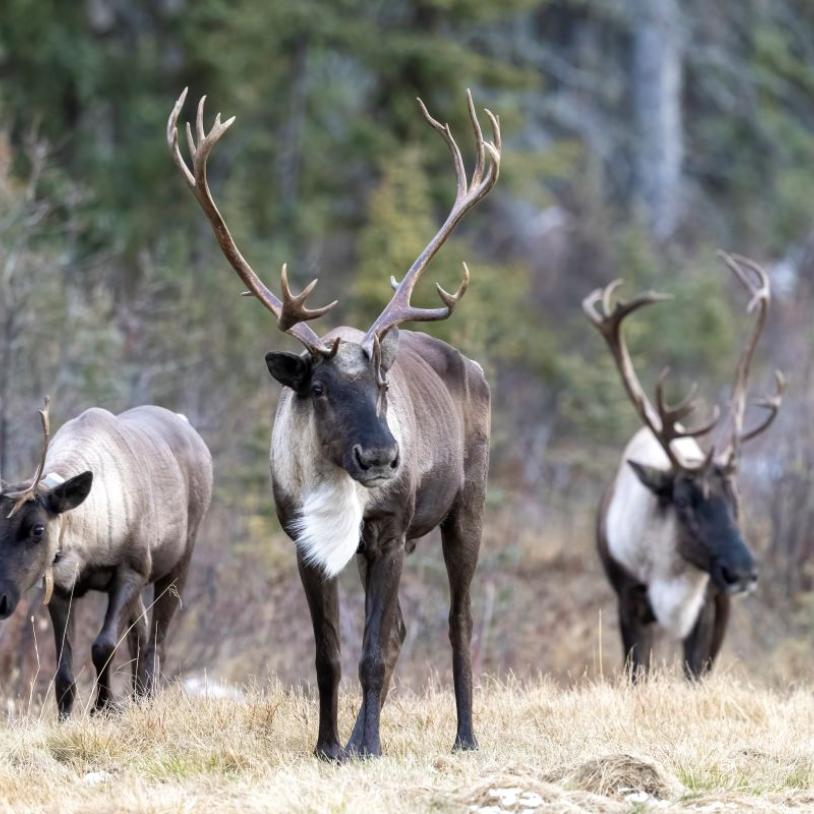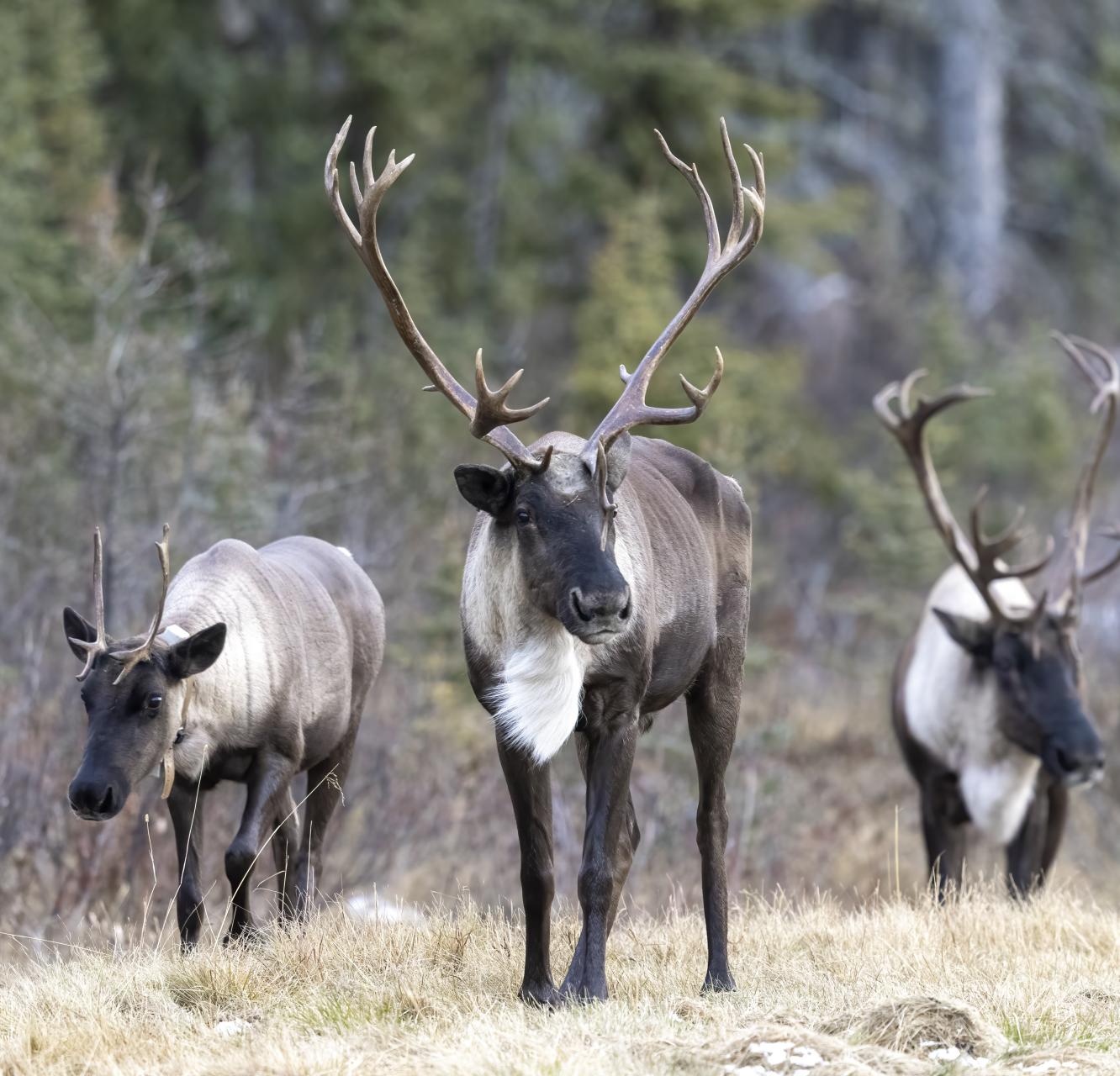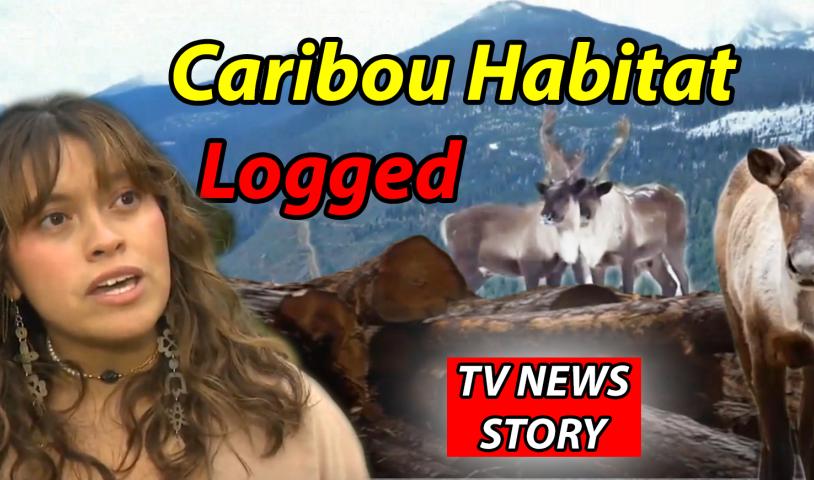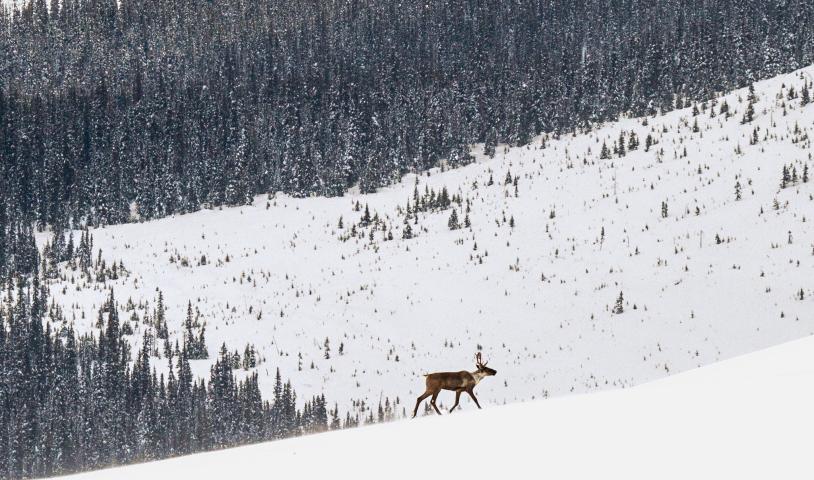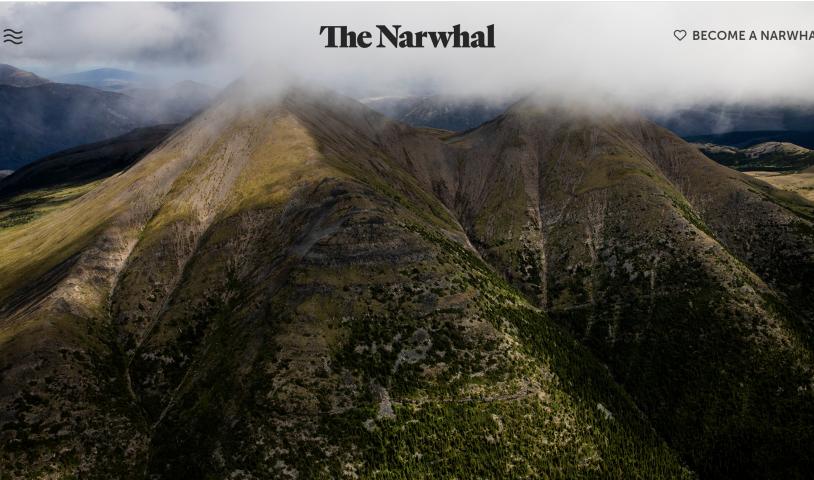New research sounds alarm on imminent danger to B.C. caribou from logging
Wednesday, June 25, 2025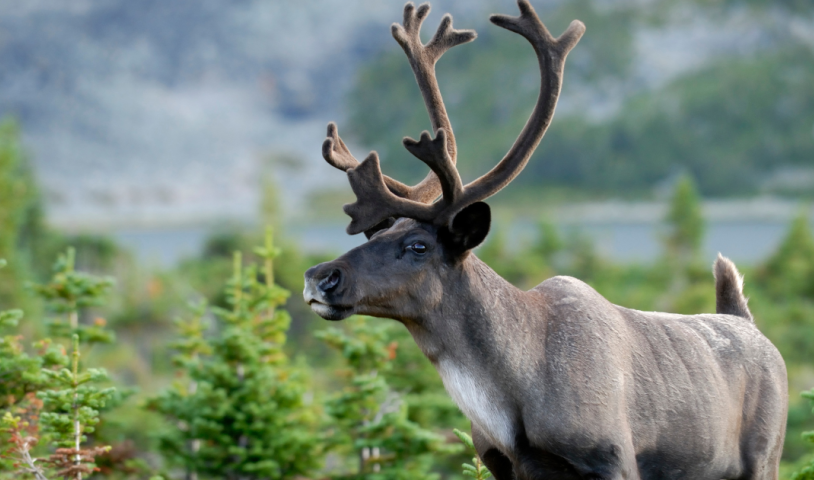
Environmental groups call for urgent action
səl̓ílwətaʔɬ (Tsleil-Waututh), xʷməθkwəy̓əm (Musqueam) and Skwxwú7mesh (Squamish) Territories (Vancouver, BC) — Thousands of hectares of old-growth and primary forests in British Columbia will soon be destroyed by industrial logging — further eroding critical habitat for southern mountain caribou that has already been heavily fragmented by decades of clearcutting. New research released today by Stand.earth, Wildsight and Wilderness Committee highlights the mounting threat to three of the province’s most endangered herds.
The research, conducted using provincial data, reveals that 5,713 hectares of old-growth and primary forests are either approved or pending approval for logging across the range of the Columbia North, Groundhog and Wells Gray South herds. This impending logging is a direct result of how unprotected their habitat is, with 58 per cent of their combined ranges at risk of logging.
“It’s unacceptable that our government is still allowing old-growth logging to occur in caribou habitat,” says Eddie Petryshen, Conservation Specialist at Wildsight. “With caribou, it’s not only talk and log. It’s talk and log, while the provincial and federal governments watch as localized extinctions happen in real time.”
The trio of environmental groups is urging the province to stop approved logging, withhold pending permits for new logging, and immediately protect critical southern mountain caribou habitat — especially in the ranges of these three herds.
“Our analysis shows that even as southern mountain caribou populations continue to decline, the destruction of their critical habitat hasn’t slowed down. This is a federally-protected endangered species — its protection isn’t optional, it’s an obligation. Rejecting pending logging permits in critical caribou habitat is the bare minimum.”
-Lucero Gonzalez, Conservation and Policy Campaigner
“Not counting the thousands of hectares currently pending logging approval, 41 per cent of the habitat for these three herds is already classified as disturbed by human activity. This exceeds the 35 per cent disturbance threshold Canada considers acceptable. If that level of destruction is deemed unacceptable under federal law, it shouldn’t be considered acceptable on the ground either,” Gonzalez added.
With seven herds further south now extirpated, the Columbia North, Wells Gray and Groundhog herds have the best chance of recovery of B.C.’s remaining southernmost caribou. Their future depends on the immediate preservation of the rich and complex old forests that mountain caribou rely on for food and shelter.
A handful of companies are having a disproportionate impact on the Columbia North, Groundhog and Wells Gray South herds, including West Fraser, Interfor, and Canoe Forest Products. Forest Eye, Stand.earth’s satellite monitoring tool, has documented old-growth logging of these herds’ critical habitat as recently as May 2025.
“Once again, the B.C. government is allowing logging company executives to line their pockets at the expense of rare forests and it has set up endangered southern mountain caribou as collateral damage, despite promising to protect the forests that these animals need.”
- Tegan Hansen, Stand.earth Senior Forests Campaigner
“By approving thousands of hectares of new logging in caribou habitat, the B.C. government is signing off on extinction. The people of this province expect better from this government, which must act now to save these herds and their habitat, before it’s too late and they’re gone forever,” Hansen added.
The findings are in stark contrast to the recommended levels of habitat protection in the federal Southern Mountain Caribou Recovery Strategy, particularly when it comes to core habitat. For example, the strategy recommends 100 per cent of the Columbia North herd’s core habitat be protected; only one third currently is.
The risk still facing southern mountain caribou habitat is unacceptably high. Stand.earth, Wilderness Committee and Wildsight are calling on the B.C. government to finally take its responsibility to this endangered species seriously, by working in true partnership with First Nations to fully protect critical habitat and reject all pending logging permits in the area.
-30-
For more information, please contact:
Wilderness Committee
Lucero Gonzalez | Conservation and Policy Campaigner (English)
lucero@wildernesscommittee.org, 604-700-3280 (Pacific Time)
Stand.earth
Tegan Hansen | Senior Forest Campaigner (English, French)
tegan@stand.earth, 250-354-3302 (Pacific Time)
Kathryn Semogas | Communications Specialist (English)
kathryn.semogas@stand.earth, 905-536-3800 (Eastern Time)
Wildsight
Eddie Petryshen | Conservation Specialist (English)
eddie@wildsight.ca, 250-427-9885 (Mountain Time)
Amelia Caddy | Communications & Philanthropy Lead (English)
amelia@wildsight.ca, 587-573-7138 (Mountain Time)
